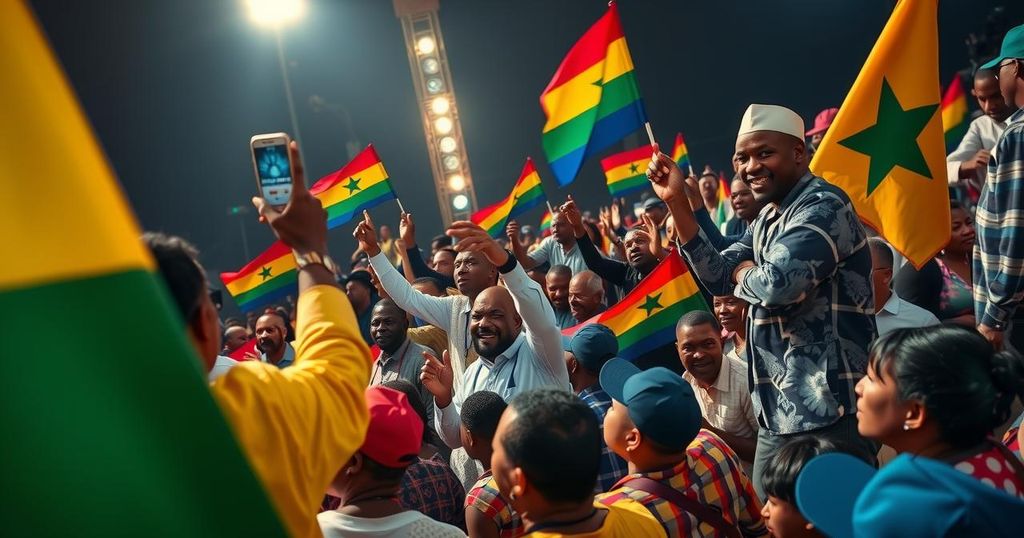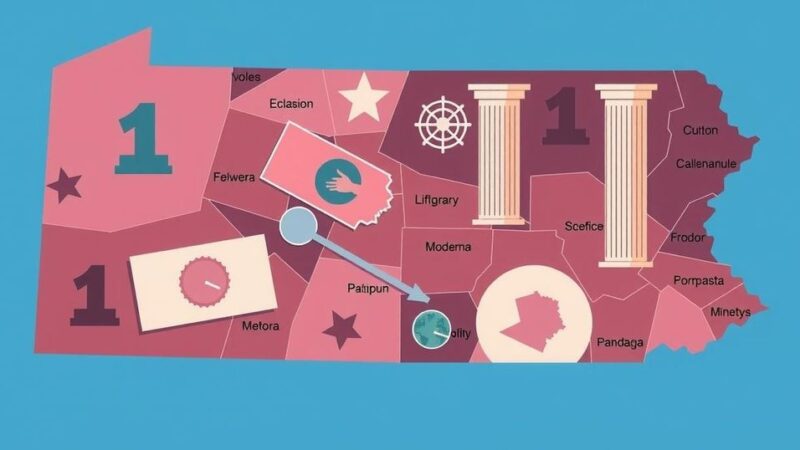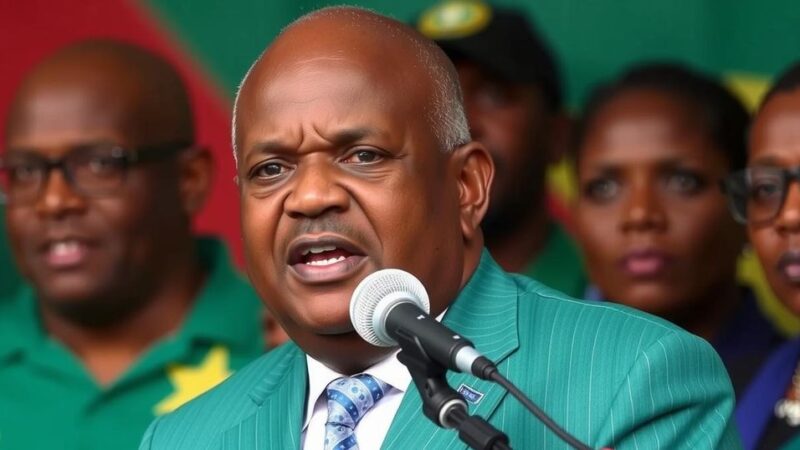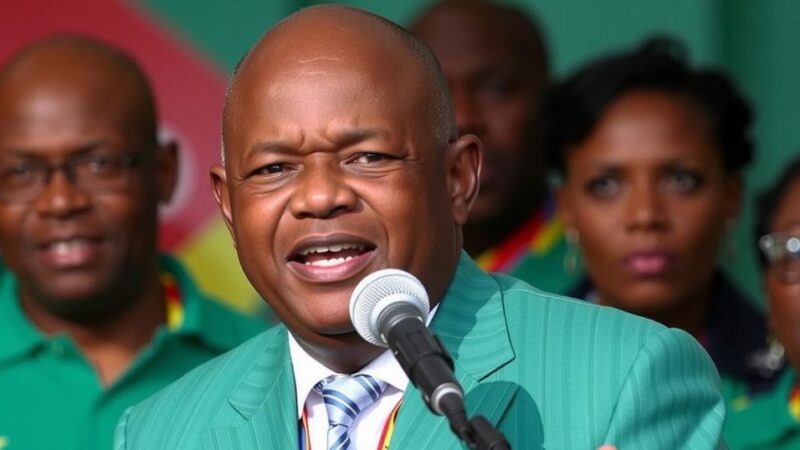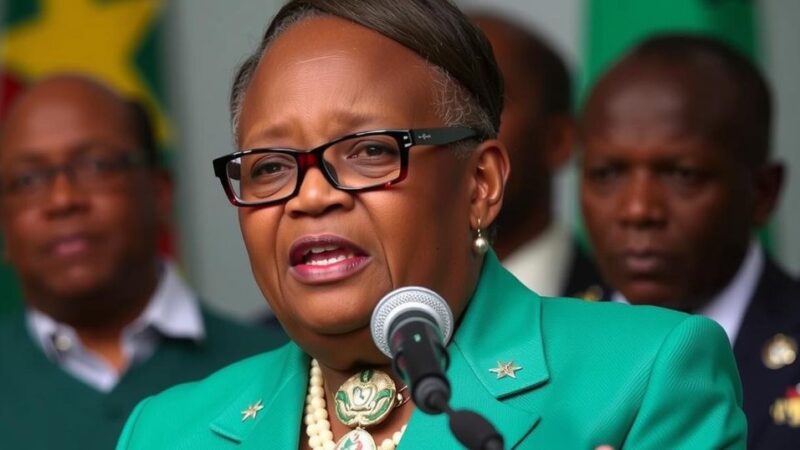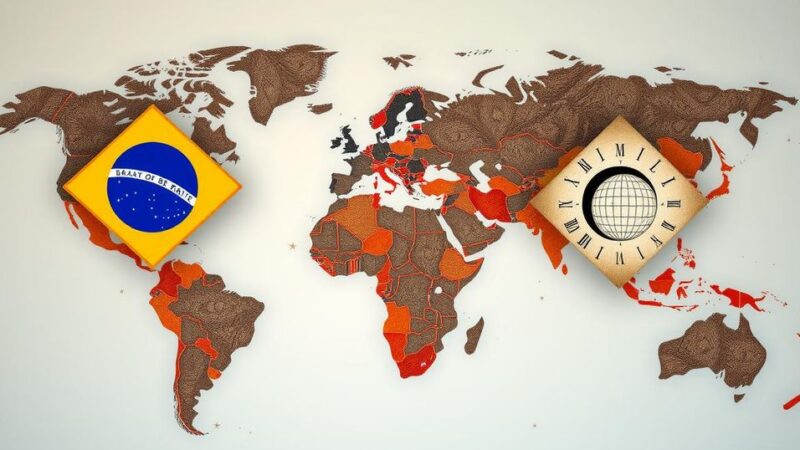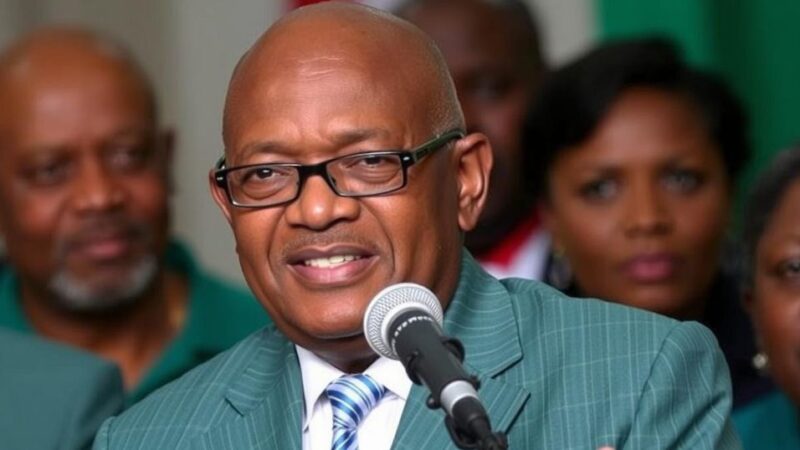Ahead of Ghana’s elections, the LGBTQ+ community faces uncertainty as presidential candidates align with anti-LGBTQ+ sentiments. A controversial bill, passed by Parliament, proposes severe penalties for LGBTQ+ identities, with implications for family and friends. This hostile climate is compounded by sociopolitical pressures and public intolerance, raising concerns about human rights protections in Ghana.
In the lead-up to Ghana’s general elections, the LGBTQ+ community is confronted with significant uncertainty, given that all prominent presidential candidates pledge to reinforce anti-LGBTQ+ legislation. A key consideration for the winner of the December 7 vote will be the potential signing or veto of a controversial bill passed by Parliament that imposes jail sentences for those identifying as LGBTQ+. The Supreme Court is set to review this bill’s constitutionality on December 18.
Ruling party candidate Mahamudu Bawumia has made explicit commitments to endorse the bill, while his chief opponent, former president John Dramani Mahama, has voiced intentions to fortify existing laws against homosexuality. Abena, a spokesperson for the LGBTQ+ community, expressed her anxiety, stating, “These are people who are actually supposed to protect me. My vote and the rest of the community’s will put them in a position of leadership. I feel like I do not belong.”
Existing Ghanaian law already criminalizes same-sex relationships, but the proposed legislation broadens the scope of what is considered illegal and intensifies penalties. Human rights advocates warn that these measures will further endanger sexual and gender minorities, specifying potential imprisonment of up to five years for same-sex activities and punishments for those who fail to report LGBTQ+ individuals.
Such initiatives have exacerbated the long-standing societal prejudice against LGBTQ+ citizens in Ghana, with public attitudes leaning heavily towards intolerance. An Afrobarometer survey reported only 7% of respondents expressing acceptance of same-sex relationships, showcasing the struggle faced within a deeply conservative, religious context.
Michael Akagbor, a senior officer at the Centre for Democracy and Development Ghana, highlighted how the ongoing discussions surrounding the bill have intensified anti-LGBTQ+ sentiment and led to increased violence against LGBTQ+ individuals, stating, “Even though it has not become law, it has seeped into the psyche of the public, which is basically homophobic…”
With the potential criminalization of friends and family who do not report suspected LGBTQ+ individuals, many are forced into hiding, experiencing significant loss of employment and housing opportunities. Advocacy for LGBTQ+ rights faces severe challenges as noted by Hans Burinyuy, who articulated the precarious state of safety for openly LGBTQ+ individuals, given the very real threat posed by such legislation.
International criticism of the bill has been substantial, with the European Union labeling its passage as “profoundly disturbing,” emphasizing the violation of Ghana’s constitution and international human rights obligations. Concerns over financial ramifications, especially regarding donor funding tied to human rights practices, have prompted urgent dialogue among Ghana’s leadership.
As the Supreme Court prepares to issue a ruling on the bill, Abena is left anticipating a decision that may come too late to influence her electoral choices, voicing her concerns about the bleak future for LGBTQ+ individuals in a country where political candidates leverage their positions on the LGBTQ+ issue to gain public favor.
The current political climate in Ghana creates a precarious situation for the LGBTQ+ community. As candidates for the upcoming December elections compete to showcase their anti-LGBTQ+ stance, a pervasive culture of discrimination and hostility prevails. The parliament’s introduction of a bill that intensifies penalties for LGBTQ+ identities adds to the community’s concern about their safety and rights. With the Supreme Court’s impending decision on this matter, the stakes remain high for both the candidates and the individuals affected by these laws. This environment exacerbates existing societal prejudices, with Ghana’s data indicating an overwhelmingly intolerant outlook towards LGBTQ+ relationships. As political discourse surrounding the elections revolves around anti-LGBTQ+ rhetoric, individuals like Abena fear that their very identities are being manipulated for electoral gain, impacting their safety and sense of belonging within their own nation.
The upcoming elections in Ghana are set against a backdrop of heightened anti-LGBTQ+ sentiment, as candidates vie to establish their credentials on social issues concerning sexuality. The legal and social repercussions of the proposed anti-LGBTQ+ bill could have dire consequences for the community, fostering an atmosphere of fear and isolation. With the Supreme Court’s ruling awaited, and the stakes at a critical juncture, the choices made by voters and leaders alike will be pivotal in shaping the future for LGBTQ+ individuals in Ghana.
Original Source: www.voanews.com

